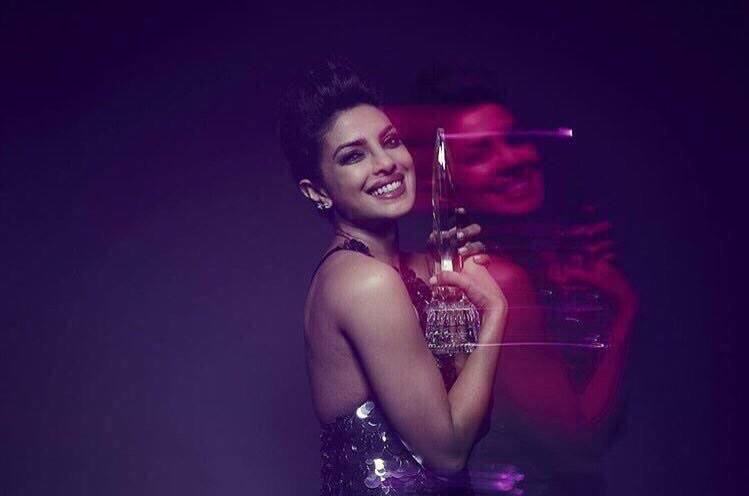
It’s confirmed: Priyanka Chopra has not only triumphed over Bollywood but Hollywood as well, officially.
Last night, Chopra bagged her first People’s Choice Award, not to mention the only Indian to do so, as Favorite Actress in a New Television Series for her role as FBI agent, Alex Parrish, in ABC’s thriller “Quantico”!
Receiving this award marks the appreciation she deserves from not only South Asian Americans but all of America.
“I’d like to thank everyone who voted for ‘Quantico.’ My first year in America and to come to another country and to actually get this kind of acceptance is, I guess, what America is all about so thank you all for accepting me.”
In addition to winning an award, PC also presented the award for Favorite Movie alongside yesteryear hunk, “Full House’s”John Stamos.
From what started as winning the title of Miss World in 2000, she proves once again that she can do it all!
May we add, she looked absolutely flawless in her dazzling Vera Wang dress (yes, even while standing next to Stamos).
Posted by Priyanka Chopra on Wednesday, January 6, 2016
Post win and her adorable burger-eating-selfie, PC went on Twitter to express gratitude for her fans.
Red carpet prep!!! Yummmmmm! #PCAs tonight
Posted by Priyanka Chopra on Wednesday, January 6, 2016
I am so fortunate!Thank U to everyone who voted for me at the #PCAs! My #PCManiacs-I am nothing without you!Big love pic.twitter.com/Omg31wG7oa
— PRIYANKA (@priyankachopra) January 7, 2016
And while we congratulate PC, we must shout-out our favorite Mastani, Deepika Padukone, for signing a role in Vin Diesel’s forthcoming sequel of “XXX: The Return of Xander Cage.”
Seeing South Asian leads is (finally) becoming a norm in America. It looks like Aziz Ansari’s dream of seeing more than one brown person in a show or film will come true sooner than later.
[Read Related: Aziz Ansari’s ‘Master Of None’ is a Smart, Real and Hilarious Triumph]
Zaynah Arefin is known as a Houstonian-New Yorker. She is a New Yorker in the truest of senses but thanks to that little thing called love she now resides in Texas. Arefin is probably the desi-est of the desis. She has a passion for writing and an even more intense love for all things Bollywood! She also hopes to connect with all of you filmy folk through Brown Girl Magazine! After all, who run the world? Brown girls!




